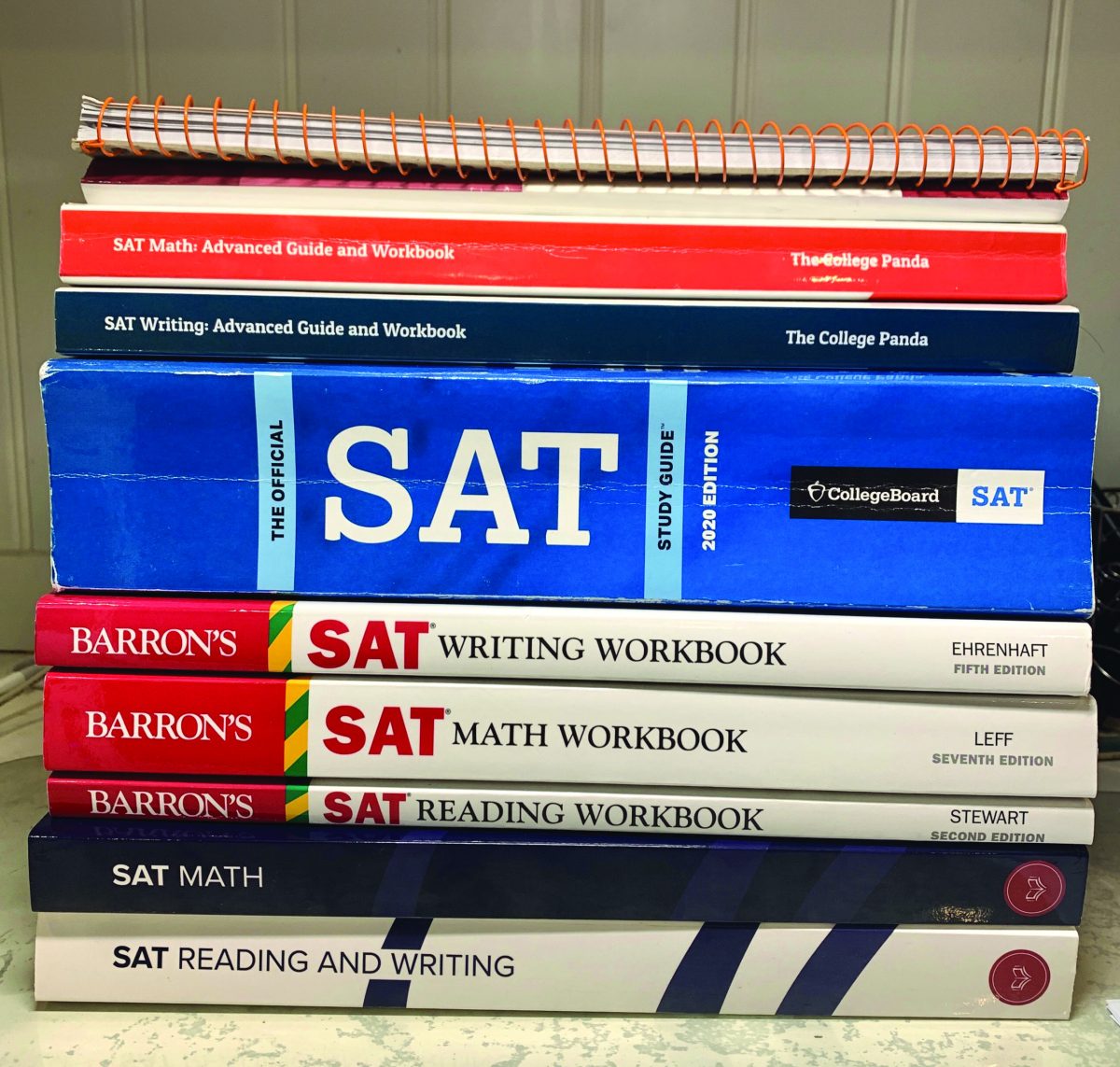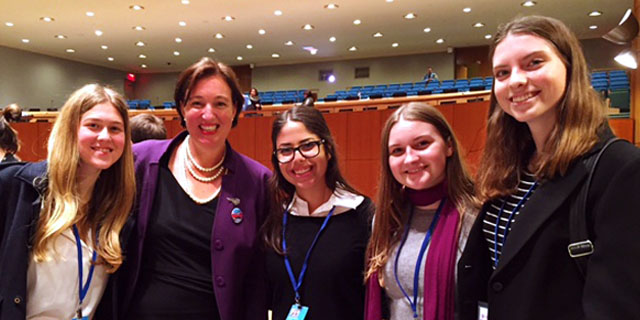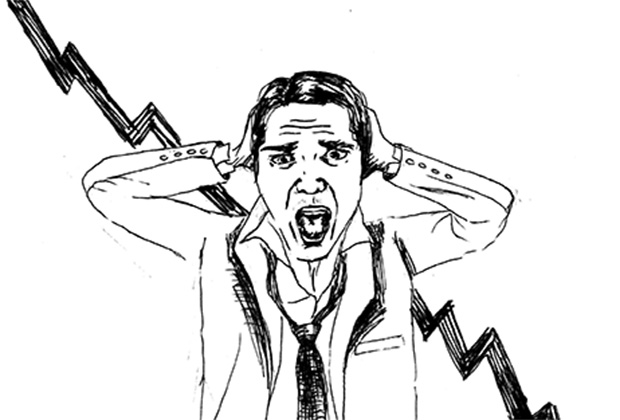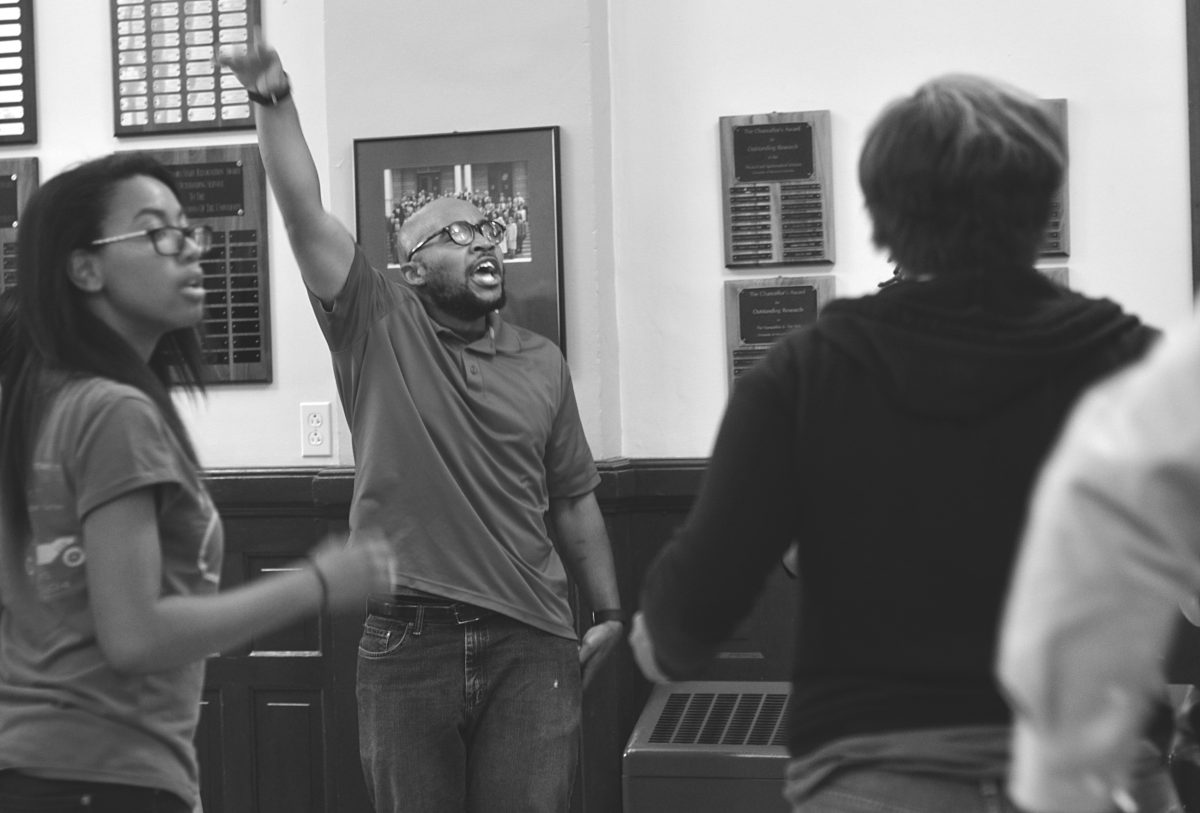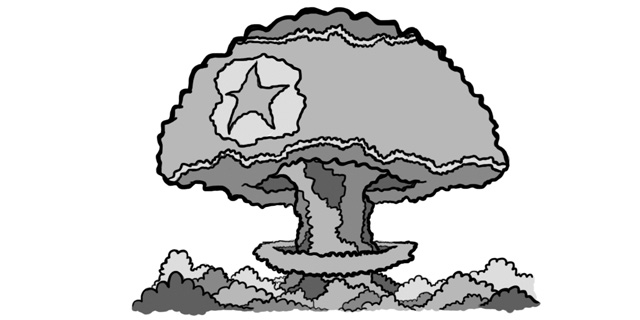
Since Sept. 22, 2014 citizens in Hong Kong have protested the Chinese government’s decision to select all the candidates allowed to run in elections. The protesters want the right to choose chief executive candidates and have called for C.Y. Leung, Hong Kong’s current Chief Executive, to resign.
During President Barack Obama’s trip to Beijing for the Asia Pacific Economic Cooperation summit on Nov. 10, he met with President Xi Jinping of China. According to The New York Times, Obama shared his concerns towards the protests and promoted the limitation of government forces in order to decrease the chance of violence.
“I was unequivocal in saying to President Xi that the United States had no involvement in fostering the protests that took place there; that these are issues ultimately for the people of Hong Kong and the people of China to decide,” Obama said during a press conference.
The movement has been in response to China’s National People’s Congress (NPC) August 31 decision that, beginning in 2017, citizens will only be able to vote for their leader by choosing from a list of two or three pre-decided candidates. When the motion went public, Occupy Central With Love and Peace, a civil disobedience campaign, teamed up with Hong Kong Federation of Students to boycott classes and occupy, or take control of, major districts in the city. On The first day, approximately 13,000 students participated.
By Sept. 29, around 50,000 people joined the movement popularly called the “Umbrella Movement” or “Umbrella Revolution.” New York resident Adam Cotton coined the term “Umbrella Revolution” on Twitter shortly after the first protests, referencing the sea of umbrellas, raincoats, and goggles citizens used to shield themselves from the tear gas and pepper spray used by riot police.
The occupations outside government buildings escalated as the numbers of supporters for the pro-democracy movement grew. According to The Guardian, more than 70 students were arrested and more than 40 people, including both protesters and police, were injured in the earliest demonstrations. The rising tension prompted police officers to use aggressive control tactics such as tear gas and pepper spray as soon as Sept. 28.
The protests began hopeful of policy change due to the masses of public support. In a CNN article, Phoebe Leung, a 16-year-old student participant in the protests, expressed her optimism in reform.
“I can’t change Hong Kong, but if all of us are here … we may change Hong Kong’s future,” Leung articulated.
On Oct. 2, C.Y. Leung delivered a speech in response to the protests, stating that he would not resign but would hold talks with the activists.
According to The New York Times, alleged pro-government thugs began to attack the protesters on Oct. 3, ransacking their camps in Mong Kok, a busy shopping district. The unidentified group physically assaulted many of the activists, groping and sexually harassing several females and throwing cans and bottles at the camps. More than 18 people were injured due to insufficient protection from the small number of police present. Many claimed that the police nearby did not interfere with the violence and suspected that the government delayed sending backup in order to intimidate the activists.
Due to the violence against the demonstrators, the Hong Kong Federation of Students and Occupy Central With Love and Peace declined the chief executive’s invitation to negotiate with protesters.
“Today, it has broken its promise to the people, broken faith and without justification cracked down on the Occupy movement, treating the people as enemies,” Occupy Central asserted in a public statement.
On Oct. 15, demonstrators tried to re-occupy a road near government buildings, but police stopped them. According to CNN, government forces used pepper spray in order to attempt to remove protestors and barricades, arresting 45 citizens for “unlawful assembly and obstructing police officers.”
After this skirmish, the Chief Executive made a live speech on a local television station. He rejected the idea that the protests were a “revolution” and stated that his leadership and the NPC decision will remain.
Televised talks regarding the pro-democracy protests began on Oct. 21 with Chief Secretary Carrie Lim and the Hong Kong Federation of Students. The student group voiced its goals and concerns with the current government, while Lim expressed the unlikelihood of the law’s repeal and Leung’s resignation.
Even though the demonstrations boast daily large turnouts, not everyone supports them. According to CNN, many citizens of Hong Kong see the protestors as an annoyance that block roads and force schools to close. Also, business owners have claimed that they have fewer customers due to the violent nature of the incident in Mong Kok, causing them to lose money.
A majority of the protesters are made up of students who are fighting for their future. One of the main groups participating in the Umbrella Revolution is Scholarism, which is made up of high school students and led by 17-year-old Joshua Wong. He has rallied young students to fight anti-democracy policies enacted by the government since 2012.
According to a Time article, with very large and financially successful companies already controlling much of Hong Kong, a concentrated election will only further put the city’s richest residents in favorable positions. Young people, like Wong, wish for democracy in order to force the government to focus on public policies for everyone, not just the wealthiest few.
China’s reaction to the protests in Hong Kong has been very limited: president Xi Jinping has not publicly responded to them. Only through state-controlled newspapers does Beijing show its disapproval of the demonstrations. The country has also censored information concerning them in any news or social media source.
In a Vice article, Rusty, a resident of Hong Kong, is impressed by the spirit of the student protestors.
“The young people have this determination you can really see. Even if it means they have to bring their homework here, they’re still here. The young people here are extremely knowledgeable about what’s going on here politically and are educated enough to decide for themselves,” Rusty commented.
The sheer number of participants in the Umbrella Revolution created cause for massive tent cities to house protesters overnight.
According to a Time article, there are no leaders in these protest communities, but rather huge numbers of volunteers. The suburb of tents is called Freedom Quarter and not only acts as a sleeping space for protesters but also houses supply tents for food and amenities, memorial artworks and study areas.
Many have observed the lack of chaos or filth surrounding these camps. Father of Alli ’17, Brian Yoon works in Hong Kong and noticed the surrealistic atmosphere of these tent cities. He noted the extremely orderly and clean space, with no present garbage or violence.


